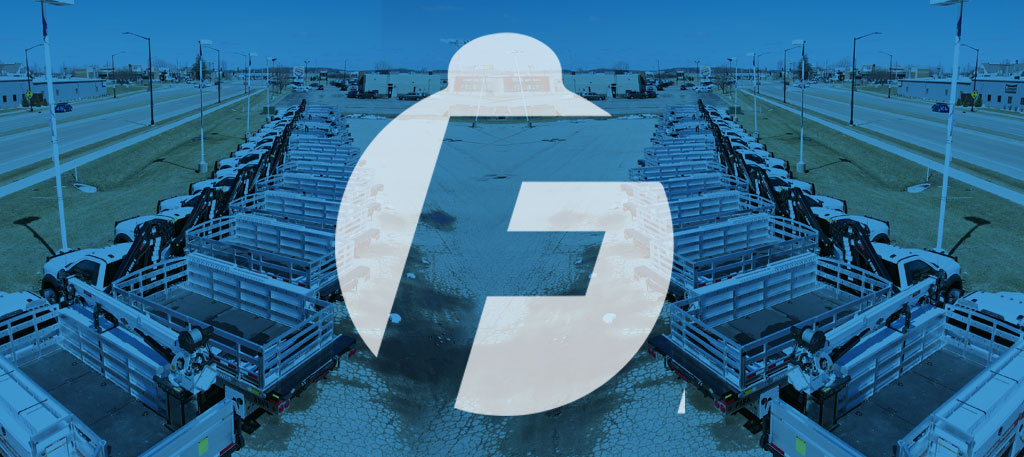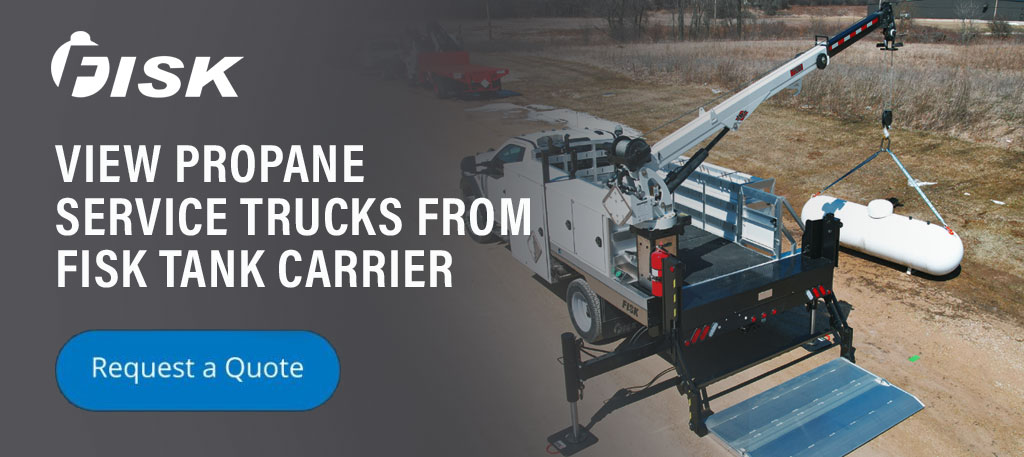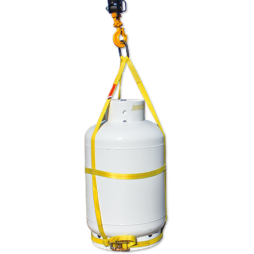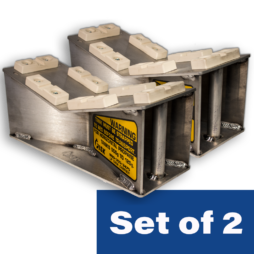Table of Contents
1. What Is Fleet Efficiency?
2. How To Improve Fleet Efficiency
3. Which Fleet Management Metrics Should You Measure?
Fleet management involves several moving parts. With the right strategies, business owners and fleet managers can improve efficiency across their fleet to increase fuel economy, keep their vehicles in top shape and implement continual improvements. Discover how to improve the efficiency of your vehicle fleet in this guide.
The propane industry is growing, with global demand expected to increase across the commercial, residential and transportation sectors during the next few years. As propane installation and service companies look for ways to meet demand, vehicle fleet efficiency is a top solution. Optimizing your vehicle fleet reduces costs and improves your operation, ensuring you’re ready to face the changing market.
What Is Fleet Efficiency?
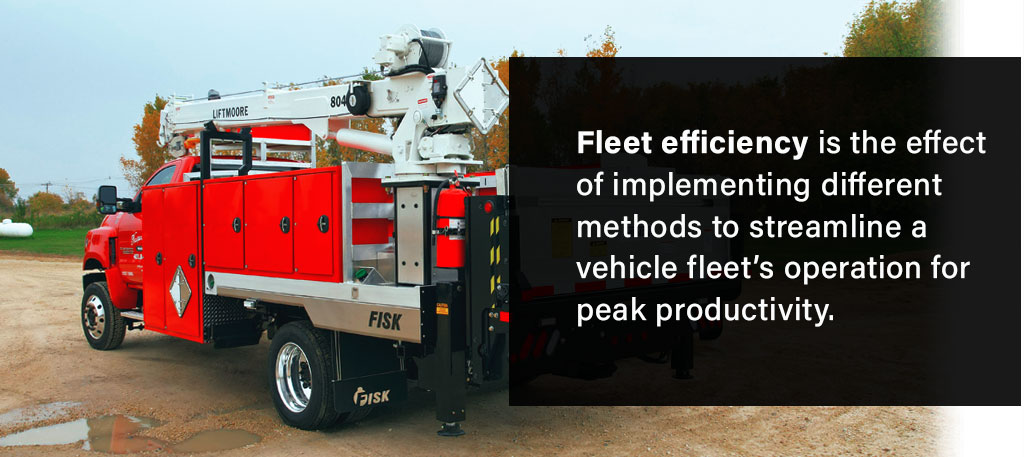
Fleet efficiency is the effect of implementing different methods to streamline a vehicle fleet’s operations for peak productivity. Fleet managers improve efficiency when they strategically use a minimum amount of resources to achieve maximum results from their fleet’s performance. Optimizing fleet efficiency is one way for a propane company to meet productivity goals while reducing costs, enhancing the likelihood of long-term business success.
Fleet efficiency practices measure and create solutions for all sorts of obstacles. Most of the common efficiency challenges relate to aspects of business that the fleet manager can control or influence with a fleet efficiency strategy. However, some challenges that propane installation businesses face are only solvable with cooperation from the vehicle drivers. The factors affecting fleet management include:
- Driver safety and behavior
- Vehicle performance
- Route scheduling
- Fuel consumption
- Cost of vehicle maintenance and replacement
Unlike businesses that sometimes use vehicles to perform specific tasks, propane companies depend on their fleets to maintain operation. Fleet efficiency is essential for companies that want to improve their profitability. A propane installation company’s success hinges on its fleet’s efficiency and ability to optimize each of these processes.
Efficiently managing fleet operations is the difference between outstanding and inferior fleet performance. Many propane installation companies use outdated fleet management practices. These businesses can experience significant benefits from implementing fleet management objectives to improve productivity.
What Does Fleet Efficiency Involve?
A fleet efficiency strategy is a multi-faceted approach to getting the most out of a vehicle fleet. A propane installation company might use a variety of methods and several different tools to accomplish this goal. Although the process of improving fleet efficiency may look different for various companies, achieving peak fleet efficiency often involves using methods like:
- Data collection
- Vehicle monitoring
- Driver training
11 Ways to Improve the Efficiency of Your Vehicle Fleet
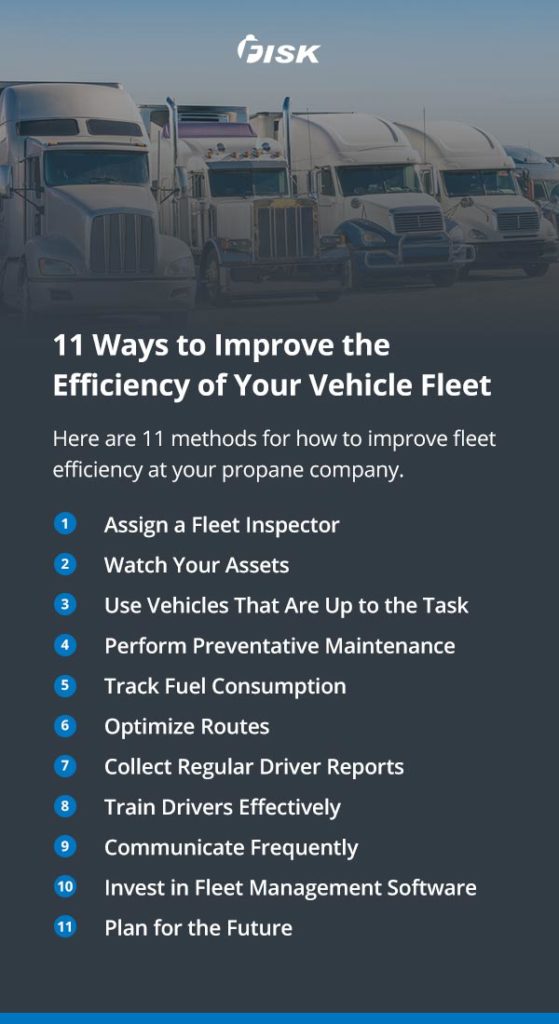
An effective fleet management strategy prioritizes visibility into every aspect of the operation so business owners and fleet managers can identify areas for improvement. Using the 11 methods below improves the efficiency of a propane installation company’s fleet by reducing downtime, saving money and making operations more productive.
Here are 11 methods for how to improve fleet efficiency at your propane company.
1. Assign a Fleet Inspector
Effective fleet optimization requires careful monitoring and proactive maintenance. Propane installation companies should perform vehicle inspections and parts replacement on their trucks and trailers. Regular maintenance on a set schedule prevents minor issues from escalating later, so this maintenance is essential.
The fleet manager might set regular alerts on their calendar or in their fleet management software for inspections. If these responsibilities are too much for the fleet manager, your company might consider hiring an experienced fleet inspector. The new role would oversee the trucks and trailers, helping your company meet its fleet management goals. Knowing how to keep track of fleet maintenance is a valuable skill. A fleet inspector will also reduce the burden on the fleet manager, who can focus on more productive work.
2. Watch Your Assets
Propane installation companies have many assets, from drivers to trucks, trailers and containers. Keeping track of these resources — where they are, what they are doing — is essential to improving efficiency. Paying careful attention to driver performance and the condition of vehicles helps managers and inspectors monitor their fleet and implement strategies for improving it.
Propane companies can use a mobile app to stay connected with drivers and trucks during operation. A mobile app tracks vehicle utilization, driver time and vehicle status. Using an app allows the fleet manager to track every aspect of their daily operation from their smartphone or tablet, enabling better visibility into their efficiency.
3. Use Vehicles That Are Up to the Task
Every vehicle in your company’s fleet should be adequately equipped to perform the task your team asks of it. For example, vehicles transporting tanks larger than 500 gallons should have larger transport capabilities and additional support. A 1,000-gallon propane tank requires yet another transport vehicle.
Propane installation companies need a fleet of vehicles in various sizes for different applications. Track each vehicle’s performance over time and replace them when necessary. Also, ensure you have the proper equipment to stabilize propane tanks, such as tank holders, bungee cords and lifts. These supplies should be in excellent condition.
4. Perform Preventative Maintenance
Regular fleet maintenance keeps your company’s vehicles in prime condition and improves fuel efficiency. Periodic maintenance also reduces unscheduled repairs and helps your vehicles stay in service for longer. To maintain a fleet of vehicles, fleet managers should keep track of the following essential parts:
- Tires: Tire wear significantly impacts fuel efficiency — by as much as 3%, according to the U.S. Department of Energy. Your fleet inspector should monitor tire tread and check tire pressure periodically, especially before and after long trips.
- Engine: Keep truck engines in top shape by checking for leaks and changing the fuel filter and oil as often as the manufacturer suggests, depending on your vehicle’s age and how frequently drivers use it.
- Oil: Use your truck manufacturer’s recommended oil grade to keep the engine working properly.
5. Track Fuel Consumption
Your fleet’s fuel efficiency depends on its consumption. If drivers use inefficient driving practices, fuel consumption could be unnecessarily high. In contrast, minimizing fuel consumption can save your company a significant amount of money.
Review best practices with your drivers, such as using cruise control in the right circumstances and avoiding aggressive driving. Track fuel consumption over time using driver reports to find inefficiencies you can solve with better driving strategies.
6. Optimize Routes
Delivering propane to customers is a daily task that cuts into your fleet’s efficiency without proper planning. Using optimized routes helps you avoid unnecessary or lengthy trips when shorter ones will do. Advanced routing software and GPS technology are efficient tools that fleet managers use to create the best routes for their drivers.
Here are a few tips for planning your propane installation company’s daily routes:
- Minimize idling time: Reducing vehicle idling improves its MPG and boosts fuel efficiency. Encourage drivers to turn off their vehicles when possible and consider traffic when you create routes.
- Consider road conditions: Sometimes, the longest route might be the most efficient, depending on road conditions, speed limit and traffic.
- Use the right software: Certain types of software base their recommendations on the average driver’s MPG, while your fleet’s MPG might differ. Look for options that fit your specific situation.
7. Collect Regular Driver Reports
When considering how to track fleet performance, many fleet managers take all the responsibility on themselves. However, vehicle drivers may also be a great asset in improving fleet productivity. After all, the drivers know their trucks best and use them most frequently.
Requiring regular driver reports on each vehicle’s condition helps catch inefficiencies early. When drivers complete a status report on their vehicle at the end of the day, the fleet inspector or manager can review them and perform any necessary maintenance.
8. Train Drivers Effectively
Your company’s drivers are essential assets. Training drivers and promoting best practices is worth the investment, as it improves fuel economy and protects your assets. Your propane company should train its drivers to:
- Drive safely: Regular handling of propane requires dependable and safe driving. Safe driving should be a top priority for your drivers.
- Avoid aggressive driving: Driving at fast speeds decreases fuel efficiency and puts drivers at an increased risk of an accident. Discourage this behavior and promote other responsible driving habits, like smooth braking.
- Maintain vehicles: As part of their training in completing daily driver reports, each driver should learn to accomplish tasks like checking tire pressure and oil levels. Taking these steps before and after each work day goes a long way in vehicle maintenance.
9. Communicate Frequently
Fleet managers, inspectors and drivers should communicate about your company’s fleet efficiency goals. Clear communication saves time and money and lets your drivers know that you support them in their work. Communicating about changes in company policy also gets your drivers on board with your company’s mission to improve its fuel efficiency.
Communicate with drivers throughout the day using your mobile app to receive notifications about maintenance issues early on. Collecting data on driving behavior and giving feedback to help your drivers improve is also helpful. Offering constructive criticism and incentivizing good driving patterns effectively inspires change.
10. Invest in Fleet Management Software
Investing in fleet management software gives your propane installation company the boost it needs to edge out competitors. Fleet management software often includes interfaces that allow you to track every vehicle and gain visibility into key performance indicators (KPIs). Fleet management KPIs include vehicle utilization, service hours, performance, expenses and maintenance reports. You can also use reports that the software generates from your fleet data to improve fleet management over time and determine what areas need attention.
Fleet management software provides several benefits, including:
- Automated data entry for driver reports
- Integrations with other fleet solutions and software
- Performance analysis on every vehicle
- Better insight into fleet performance
11. Plan for the Future
As with most business owners, you probably have a vision for your propane installation company’s future. You may want to invest in a larger fleet, expand your service locations or hire more drivers. Planning for the future gives you direction on where to invest your company’s resources.
Divide up your plans into concrete steps to visualize a way forward. You don’t just want to keep up with competitors — you want to surpass them. Getting the equipment and support you need as you scale your business is essential. Develop relationships with service providers like inventory management software providers and truck manufacturers that work with you to meet your unique needs.
Which Fleet Management Metrics Should You Measure?

Your ability to improve fleet efficiency depends on which vehicle performance metrics you measure and how you leverage them. Fleet management software provides a helpful guideline, but you also need a larger picture of your fleet management KPIs to develop solutions.
Here are three of the most vital fleet management metrics to measure in order to improve your fleet’s performance.
1. Maintenance Metrics
Maintenance data on your propane installation company’s vehicles is one of the most helpful fleet management metrics you can track. Consider a few of the top maintenance metrics your company should record:
- Preventative maintenance history: Tracking preventative maintenance practices ensures you’re completing repairs on schedule.
- Inspection results: Keep inspection results handy to monitor common vehicle issues and improve maintenance strategies.
- Performance issue alerts: When your fleet inspector has access to real-time vehicle performance alerts, they can begin repairs early and avoid costly downtime.
- Repair timetables: Knowing how long repairs take helps to maximize vehicle utilization and boost productivity.
- Odometer updates: Receiving regular odometer readings helps your fleet inspector stay ahead of preventative maintenance.
2. Driver and Vehicle KPIs
Keep track of your drivers and assets using these metrics:
- Telematics and GPS data: Tracking your vehicles while on the road helps you monitor driver behavior and identify areas for improvement like route optimization.
- Safety metrics: Accidents pose a threat to driver safety and vehicle performance. Track driver behavior and inspection results to limit liability.
- Driver schedules: Comparing driver schedules with GPS data gives you peace of mind that your drivers are accountable and are using assets productively.
- Maintenance technician efficiency: Monitor work orders and maintenance status updates to improve maintenance timelines.
- Asset performance: This vehicle metric considers the overall performance of your fleet. Look for trends and inadequacies across your fleet to determine where your operation needs improvement.
3. Cost Metrics
Cost is one of the essential fleet management KPIs, offering insight into areas for fleet optimization. These cost metrics provide fleet management data about your financial operations:
- Fuel consumption: Fuel is an ongoing cost, and knowing your fleet’s fuel efficiency helps you manage this resource more effectively.
- Vehicle utilization: Track vehicle utilization to ensure you get the most out of your fleet and extend its lifetime.
- Asset replacement: Track asset replacement to make the best decisions about replacing your vehicles and equipment. Investing in custom propane trucks makes your operation more efficient.
- Parts: Manage your vehicle parts inventory so your maintenance team has the necessary tools to help minimize downtime.
- Total cost of ownership: Your fleet’s total cost of ownership is a comprehensive metric that helps you make more informed decisions about fleet repairs, replacement and leasing.
View Propane Service Trucks From Fisk Tank Carrier
Managing your propane installation and service company’s fleet is essential for improving efficiency and growing your business. At Fisk Tank Carrier, we understand the necessity of optimizing your processes, which is why we provide high-quality vehicles and personalized customer service for your propane transportation needs. We build custom propane tank service trucks and propane tank trailers to equip you with the capabilities you and your customers need. With over six decades of experience, Fisk is a leader in providing individualized propane services and transportation.
Browse our propane service trucks to find your best fit today. You can also contact our team to learn more about improving your fleet efficiency.
